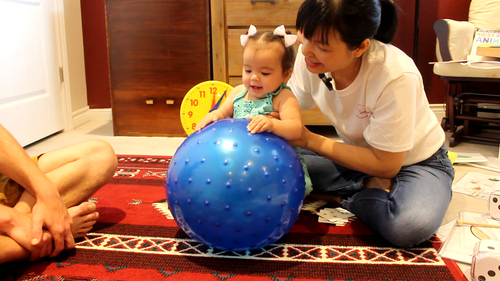Nutrition plays a pivotal role in early childhood brain development. From the moment a child is born, the brain rapidly grows, forming connections that will impact their cognitive skills, memory, and overall mental health. To support this growth, it’s crucial to ensure children get the right balance of essential nutrients, particularly vitamins, that foster brain development. In this article, we will explore key foods and vitamins for brain function that contribute to optimal cognitive performance during these formative years.
The Importance of Nutrition for Early Brain Development
The brain is an energy-intensive organ, especially in early childhood. Consuming the right nutrients and vitamins fuels its growth, helping with memory, learning abilities, and emotional regulation. Adequate intake of vitamins for brain function is essential for children’s cognitive and neural health. During these early years, children’s nutritional needs must be met to encourage learning and development at every stage.
Key Vitamins for Brain Function
To support cognitive growth in children, it’s important to focus on the essential vitamins for brain function. These vitamins can be easily integrated into your child’s diet to maximize their brain health and cognitive potential.
1. Vitamin D
Vitamin D is essential for brain development, influencing the growth and differentiation of brain cells. It helps regulate serotonin, which affects mood, learning, and behavior. Adequate levels of vitamin D are linked to improved cognitive function and emotional well-being in children.
Benefits of Vitamin D:
- Promotes the formation of new neurons
- Aids in neurotransmitter production
- Supports emotional stability and learning capacity
Sources of Vitamin D:
- Sunlight (natural production in the skin)
- Fortified dairy products
- Fatty fish (salmon, mackerel)
- Eggs
2. Vitamin B6 (Pyridoxine)
Vitamin B6 is crucial for brain function as it aids in the production of neurotransmitters like serotonin and dopamine, which regulate mood and cognitive abilities. Ensuring sufficient B6 intake can improve focus, memory, and behavior in children.
Benefits of Vitamin B6 for Brain Function:
- Supports neurotransmitter production for better cognitive function
- Enhances memory and concentration
- Improves mood regulation
Sources of Vitamin B6:
- Chicken, turkey, and fish
- Potatoes and starchy vegetables
- Bananas and nuts

3. Vitamin B12 (Cobalamin)
Vitamin B12 is another key vitamin for brain function. It helps maintain the health of nerve cells and supports the production of myelin, a protective sheath around nerves that facilitates fast and effective brain signaling.
Benefits of Vitamin B12:
- Promotes the development of a healthy nervous system
- Supports brain signaling and cognitive growth
- Prevents developmental delays
Sources of Vitamin B12:
- Meat (beef, chicken)
- Fish (tuna, sardines)
- Dairy products (milk, cheese)
- Fortified cereals
4. Folate (Vitamin B9)
Folate is important for brain function during early development, particularly in forming DNA and RNA, the building blocks of cells. It is also essential for creating neurotransmitters that help regulate mood and behavior.
Benefits of Folate for Brain Function:
- Supports DNA and cell growth
- Enhances cognitive development and learning
- Prevents neural tube defects in early development
Sources of Folate:
- Leafy greens (spinach, kale)
- Beans and lentils
- Fortified grains and cereals
- Citrus fruits
5. Vitamin E
Vitamin E is a powerful antioxidant that helps protect brain cells from oxidative stress. It is especially important during periods of rapid brain growth, such as in early childhood, to prevent damage to developing neurons.
Benefits of Vitamin E for Brain Function:
- Protects brain cells from oxidative damage
- Supports cognitive function and memory
- Contributes to overall brain health
Sources of Vitamin E:
- Nuts and seeds (almonds, sunflower seeds)
- Spinach and broccoli
- Vegetable oils (olive oil, sunflower oil)
- Fortified cereals
Other Essential Nutrients for Brain Function
While vitamins play a crucial role, other nutrients are also necessary for optimal brain function in early childhood.
1. Omega-3 Fatty Acids
Omega-3 fatty acids, particularly DHA, are critical for brain function and structure. They help build and maintain the brain’s cell membranes, contributing to better memory, focus, and learning.
Sources of Omega-3s:
- Fatty fish (salmon, sardines)
- Flaxseeds and chia seeds
- Walnuts
- Omega-3 fortified foods
2. Iron
Iron is essential for carrying oxygen to the brain, a vital process for mental energy and focus. Iron deficiency can lead to developmental delays and cognitive issues, so it’s important to include iron-rich foods in your child’s diet.
Sources of Iron:
- Lean meats
- Spinach and other leafy greens
- Lentils and beans
- Fortified cereals
3. Choline
Choline supports the production of acetylcholine, a neurotransmitter important for memory and learning. It also helps maintain the structure of brain cell membranes, which is crucial for overall brain health.
Sources of Choline:
- Eggs (especially the yolk)
- Chicken and turkey
- Fish (salmon)
- Broccoli and Brussels sprouts

Building a Brain-Boosting Diet for Your Child
Incorporating a balanced diet that includes the essential vitamins for brain function is key to supporting your child’s cognitive and emotional development. Here’s a guide on how to include these nutrients in everyday meals:
- Breakfast:Fortified whole-grain cereals with milk, plus a side of berries for antioxidants and vitamin E.
- Snack:Sliced apples with almond butter or a boiled egg for choline.
- Lunch:Grilled salmon or tuna with quinoa and a spinach salad.
- Snack:A handful of nuts or yogurt with chia seeds for omega-3s and protein.
- Dinner:Chicken stir-fry with a variety of colorful vegetables, including leafy greens for folate.
- Dessert:A small bowl of mixed fruit, especially oranges and berries, to boost vitamin intake.
Providing your child with the right balance of food and vitamins for brain function is one of the most effective ways to support their cognitive and emotional development during their formative years. From vitamin D, B6, and B12 to folate and vitamin E, these nutrients play an integral role in brain growth and health. A diet rich in omega-3s, iron, and choline also supports brain function, memory, and learning, helping to give your child the best possible foundation for academic and emotional success.
By ensuring your child receives these essential nutrients, you are laying the groundwork for strong cognitive performance and mental health throughout their life.
To learn more about early childhood education and parenting tips, please subscribe to our newsletter here for regular updates and insights.








